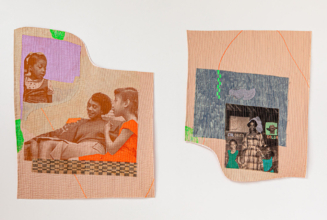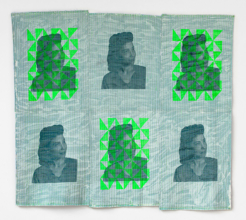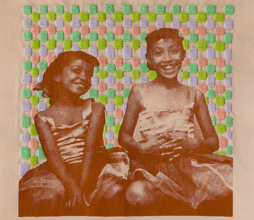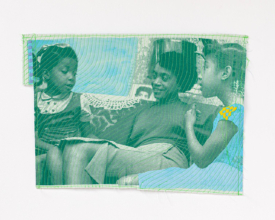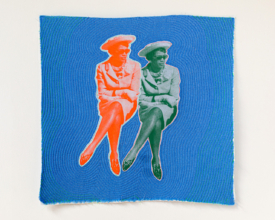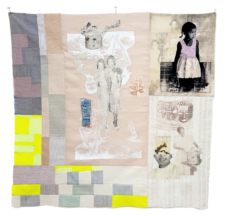The Stinnett Philadelphia Museum of Art Collection Award
The Print Center Honorary Council Award of Excellence
Stephanie M. Santana (born 1984, Los Angeles, CA; lives Brooklyn, NY) is a visual artist whose practice is rooted in the expansive traditions of textile arts and fine art printmaking. She received a BA in Communication Studies from Western Washington University, Bellingham in 2006 and an AAS in Textile/Surface Design from the Fashion Institute of Technology, New York, NY in 2018. Her work has been exhibited at locations including The John & Robyn Horn Gallery, Penland School of Craft, Bakersville, NC; Museum of Fine Arts Boston, MA; Highpoint Center for Printmaking, Minneapolis, MN; and the Claire Oliver Gallery and The Metropolitan Museum of Art, both New York; among others. Santana’s work is held in both private and public collections, such as Getty Research Institute, Los Angeles and Smith College Museum of Art, Northampton, MA. She has presented lectures and workshops at many academic and cultural institutions including The Fabric Workshop and Museum, Pennsylvania Academy of the Fine Arts and Philadelphia Museum of Art, all Philadelphia, PA. Santana’s work has been featured in publications including Getty Magazine and Pressing Matters. She was recently awarded a Kahn Mason Studio Immersion Project Fellowship at EFA Robert Blackburn Printmaking Workshop, New York as well as a Sustainable Arts Foundation grant for Wassaic Project’s artist residency program. Santana is a founding member of Black Women of Print – an organization for independent mid-career and established Black women printmakers – as well as a member of The Santana Project, an intergenerational, interdisciplinary art collective.
Statement from the Artist:
Through the use of archival photographs and documents, my work explores Black identity, interiority and strategies of resistance across generations and geographies. An intuitive and responsive layering of printmaking, painting, embroidery and quilting, each work draws upon personal and collective histories, negotiating the spaces between memory, lore and the material evidence of Black life.
